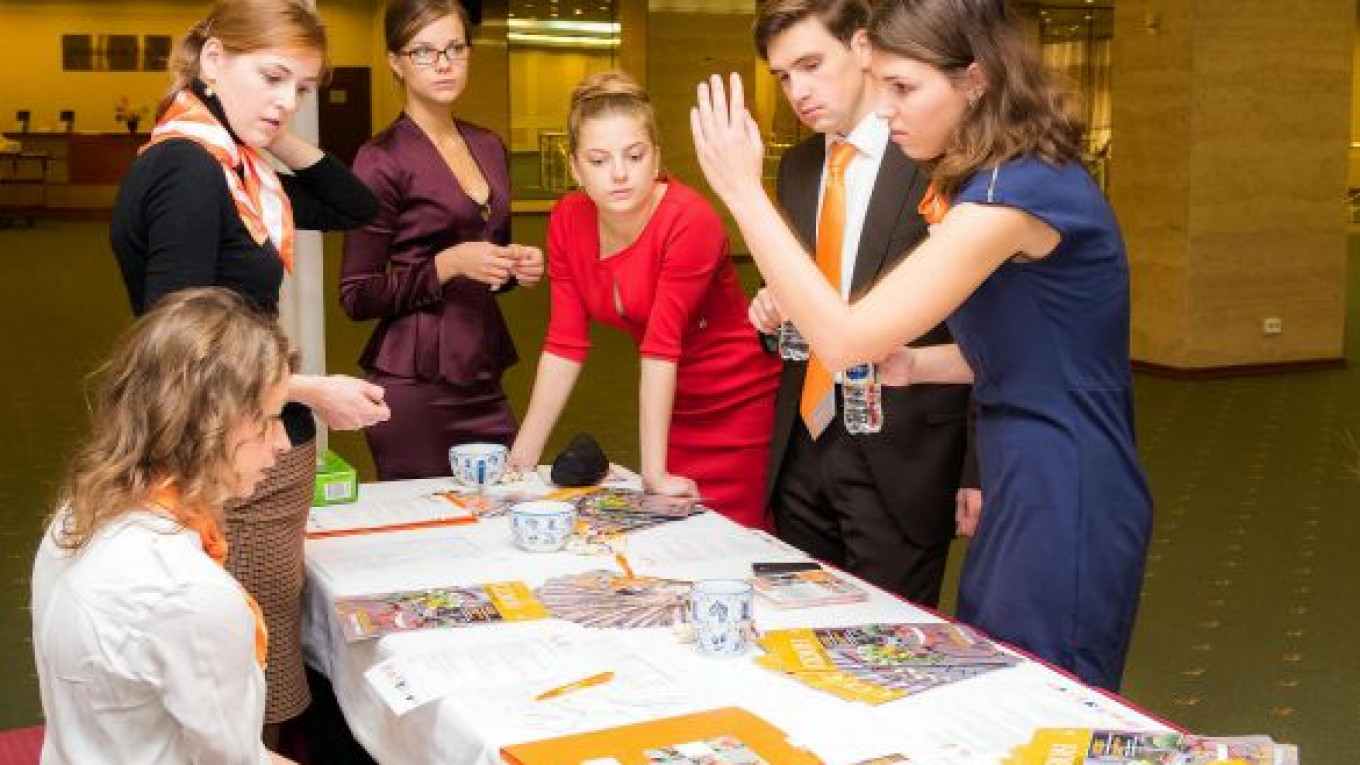The number of Russian students studying abroad continues to rise despite the financial crisis. And a growing number are paying their own way — even while the Russian government struggles to get its own bursary program off the ground.
Despite a fall in the number of scholarships due to the crisis, the number of Russians gaining first degrees, masters or Ph.Ds abroad has risen. According to the Open Doors survey by the International Institute of Education, more than 4,800 Russians studied abroad in the last academic year, an increase of about 100 on the year before.
The number of Russian students studying in the Netherlands has increased from 300 in 2009 to 600 this year, according to Nuffic Neso, an independent nonprofit organization based in The Hague, which aims to internationalize Dutch education and training while increasing access to higher education abroad. The organization took part in the Dutch Days of Higher Education exhibition in Moscow and St. Petersburg in the first weekend of October.
Since 2009, the Russian government has been discussing a plan to educate up to 10,000 Russian students abroad each year. But the program has been delayed by worries about how to force graduates to return to Russia.
Yet they are bringing their skills home voluntarily, if the evidence of Russian students studying in the Netherlands is anything to go by. The Netherlands Alumni Network in Russia, or NANR, has about 1,000 members, most of them under the age of 40.
Charles Hoedt, director of Nuffic Neso Russia, says the Russian government should not worry about students remaining abroad. Most of them will return eventually, and the longer they stay abroad, the richer their experience.
Hoedt dismisses talk of a brain drain and instead calls it a "brain train": "Dutch people leave and work abroad, but they are ambassadors for the Netherlands." In the process, his organization Nuffic, which was a niche of the education sector, is now seen as valuable part of trade and economic development, even at government level.
The federal plan to send students to study abroad, at a cost of $165,000 for the first three years, has been delayed by wrangling over how to compel students to return to Russia to work for a minimum of three years after graduation or pay back grants, travel and living costs. The experience of Kazakhstan, which also has hefty penalties for failing to return home after graduation, is inconclusive. According to WikiLeaks data from 2008, "only 29 out of 4,500 students sent abroad have thus far failed to return."
As for foreigners studying in Russia, under government education reforms the best universities will also get more federal money for incoming international students. In the Russian republic of Tatarstan, Kazan has allocated $1 million in grants to foreign I.T. specialists who conduct research in Tatarstan.
The current proportion of students on exchange programs with the Netherlands is 600 Russians and 200 Dutch students on short courses or traineeships. Russian students are taking advantage of generous scholarships offered by Dutch and other universities overseas. The number of Dutch studying in Russia is limited partly by the small proportion of lectures in English.
Contact the author at m.gay@imedia.ru
A Message from The Moscow Times:
Dear readers,
We are facing unprecedented challenges. Russia's Prosecutor General's Office has designated The Moscow Times as an "undesirable" organization, criminalizing our work and putting our staff at risk of prosecution. This follows our earlier unjust labeling as a "foreign agent."
These actions are direct attempts to silence independent journalism in Russia. The authorities claim our work "discredits the decisions of the Russian leadership." We see things differently: we strive to provide accurate, unbiased reporting on Russia.
We, the journalists of The Moscow Times, refuse to be silenced. But to continue our work, we need your help.
Your support, no matter how small, makes a world of difference. If you can, please support us monthly starting from just $2. It's quick to set up, and every contribution makes a significant impact.
By supporting The Moscow Times, you're defending open, independent journalism in the face of repression. Thank you for standing with us.
Remind me later.






